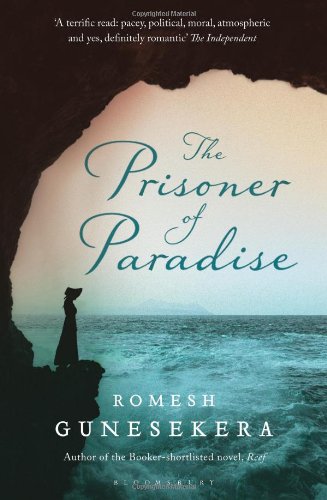The Prisoner of Paradise
First published in 2012, The Prisoner of Paradise tells the story of orphaned Lucy Gladwell, sent to live with her aunt and uncle in Mauritius. The plan is to find Lucy an eligible husband among the colonists, but Lucy, her head full of Keats’ poetry and the romantic novels of Thomas Moore, has other ideas. In this tribute to the historical romance, both playful and deadly serious, Lucy’s struggle to find a means of independent living is mirrored by the wider struggle against slavery, in 1825 coming to its messy and sometimes violent end in the British Empire. Her imprisonment in paradise also echoes that of the exotic Don Lambodar, a young translator living in exile from Ceylon as part of the retinue of a rebellious prince.
This is a terrific summer read, full of Austen-like comedies of manners but also profoundly sensual in its descriptions of everything from tropical gardens to Lambodar’s opium-induced dreams about Lucy. The sex which bubbles away below the surface of 19th-century romances is given free rein here. It is also a tale of shocking injustice and bloody revolution, in the home as well as on the sugar plantations.
Gunesekera blends the many layers and strands of his yarn with the apparent effortlessness only a master storyteller can achieve and plays on the emotions without mercy. Even while you are laughing out loud at the low farce of a genteel tea party to which Lambodar turns up stoned out of his head, your heart aches for his bruised self-esteem and the caged mynah bird hanging above the group of guests and parodying their conversation. The novel is full of shocks and surprises and, while sometimes uncomfortable, is never dull.










